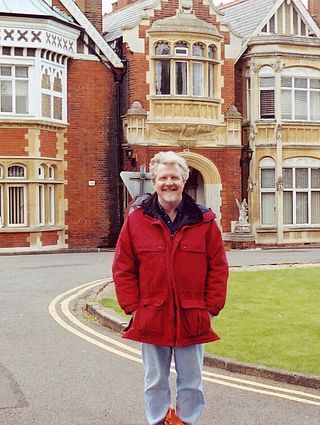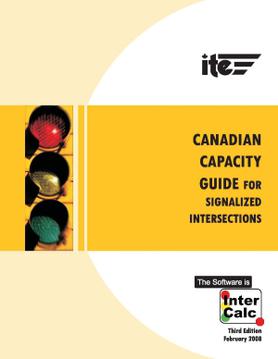CMG groups
With over thirty regional and international groups, CMG's wide reaching structure emphasizes an extensive information and peer network. Regional groups hold local educational meetings, typically three or four times a year, and many publish informational newsletters. Regional meetings may span a half-day, a full day (the most common), or occasionally two days. International CMG groups also hold their own annual conferences and publish their own conference proceedings.
In the US, Regional CMG groups cover the following areas: Boston, Connecticut, Florida, Greater Atlanta, Kansas City, Midwest, Minneapolis, National Capital Area, New York, Northern California, Northwest, Ohio Valley, Philadelphia, Rocky Mountain, St Louis, Salt Lake City, Southern, Southern California, and South West.
International CMG groups exist in Australia, Austria and Eastern Europe (CMG AE), Canada, Central Europe (CECMG), Italy, China, the Netherlands South Africa, India and the United Kingdom (UKCMG)
Publications
CMG produces a number of both print and electronic publications. Currently there are four unique publications, the CMG Journal, the CMG Proceedings, the CMG Bulletin and MeasureIT. Membership in CMG is required to obtain copies of the publications with the exception of MeasureIT. In addition, some libraries and Universities have copies of the CMG Journal available for reference use.
The free electronic newsletter, MeasureIT, is written by computer and performance professionals and is distributed around the second Tuesday of every month. Anyone may subscribe to MeasureIT by visiting the CMG MeasureIT homepage.
The Association for Computing Machinery (ACM) is a US-based international learned society for computing. It was founded in 1947 and is the world's largest scientific and educational computing society. The ACM is a non-profit professional membership group, reporting nearly 110,000 student and professional members as of 2022. Its headquarters are in New York City.
Information retrieval (IR) in computing and information science is the task of identifying and retrieving information system resources that are relevant to an information need. The information need can be specified in the form of a search query. In the case of document retrieval, queries can be based on full-text or other content-based indexing. Information retrieval is the science of searching for information in a document, searching for documents themselves, and also searching for the metadata that describes data, and for databases of texts, images or sounds.
In the context of software engineering, software quality refers to two related but distinct notions:
The International Federation for Information Processing (IFIP) is a global organisation for researchers and professionals working in the field of computing to conduct research, develop standards and promote information sharing.

The Society of Petroleum Engineers (SPE) is a 501(c)(3) not-for-profit professional organization.

Jeffrey Peter Buzen is an American computer scientist in system performance analysis best known for his contributions to queueing theory. His PhD dissertation and his 1973 paper Computational algorithms for closed queueing networks with exponential servers have guided the study of queueing network modeling for decades.
IT portfolio management is the application of systematic management to the investments, projects and activities of enterprise Information Technology (IT) departments. Examples of IT portfolios would be planned initiatives, projects, and ongoing IT services. The promise of IT portfolio management is the quantification of previously informal IT efforts, enabling measurement and objective evaluation of investment scenarios.
Arnold Oral Allen was an American instructor, public speaker, and writer who worked at IBM and Hewlett-Packard, and specialized in the analysis and mathematical modelling of computer performance.

Neil Gunther is a computer information systems researcher best known internationally for developing the open-source performance modeling software Pretty Damn Quick and developing the Guerrilla approach to computer capacity planning and performance analysis. He has also been cited for his contributions to the theory of large transients in computer systems and packet networks, and his universal law of computational scalability.
Dr. Alan Jay Smith is a computer scientist and researcher in the field of development and applications of caching strategies and the measurement and analysis of computer storage systems with many important contributions to the field. He currently is professor emeritus at the EECS faculty of the University of California, Berkeley.

NCSL International (NCSLI) is a global, non-profit organization whose membership is open to any organization with an interest in metrology and its application in research, development, education, and commerce.

The International Teletraffic Congress (ITC) is the first international conference in networking science and practice. It was created in 1955 by Arne Jensen to initially cater to the emerging need to understand and model traffic in telephone networks using stochastic methodologies, and to bring together researchers with these considerations as a common theme. Up through World War II, teletraffic research was done mainly by engineers and mathematicians working in telephone companies. Most of their work was published in local or company journals. In 1955, however, the field acquired a formal, international, institutional structure, with the organization of the first International Teletraffic Congress (ITC).
Association for Standardization of Automation and Measuring Systems or ASAM is an incorporated association under German law. Its members are primarily international car manufacturers, suppliers and engineering service providers from the automotive industry. The association coordinates the development of technical standards, which are developed by working groups composed of experts from its member companies. ASAM pursues the vision that the tools of a development process chain can be freely interconnected and allow a seamless exchange of data. The standards define protocols, data models, file formats and application programming interfaces (APIs) for the use in the development and testing of automotive electronic control units. A large amount of popular tools in the areas of simulation, measurement, calibration and test automation are compliant to ASAM standards. Compliance shall guarantee interoperability of tools from different vendors, allow data exchange without the need for converters, and facilitate the exchange of unambiguous specification between customers and suppliers.

The Canadian Capacity Guide for Signalized Intersections (CCG) is a publication of the Canadian Institute of Transportation Engineers (CITE). It provides a methodology that allows Traffic Engineers to plan, design, and evaluate traffic signal controlled roadway intersections.
The National Conference on Weights and Measures (NCWM) is a not-for-profit corporation dedicated to developing the United States technical standards for weights and measures in commerce. The organization's official mission is "Ensuring Equity and Uniform Standards in a Changing Marketplace."

IT risk management is the application of risk management methods to information technology in order to manage IT risk, i.e.:
The Hermes Road Measurement System is the result of the EU-funded project Innovative, Highly Efficient Road Surface Measurement and Control System that was undertaken between August 2012 and July 2014. The project was funded through the European Union's Seventh Framework Capacities Programme that aimed at supporting research for the benefit of small-to-medium enterprises (SMEs). This is realised by cooperation between a group of SMEs from several European countries, working in collaboration with a number of research and technological development (RTD) institutes, collectively constituting the project's consortium.
Measuring attractiveness through a categorical-based evaluation technique (MACBETH) is a multiple-criteria decision analysis (MCDA) method that evaluates options against multiple criteria.
The Bangladesh Computer Council (BCC) is a statutory government organization operating under the Information and Communication Technology Division of the Ministry of Posts, Telecommunications, and Information Technology of the Government of Bangladesh (GoB). Its headquarters are situated in Agargaon, Dhaka, Bangladesh. It was initially known as the National Computer Committee (NCC) in 1983 and transformed into the Bangladesh Computer Council through Act No. 9 of the National Parliament in 1990.






